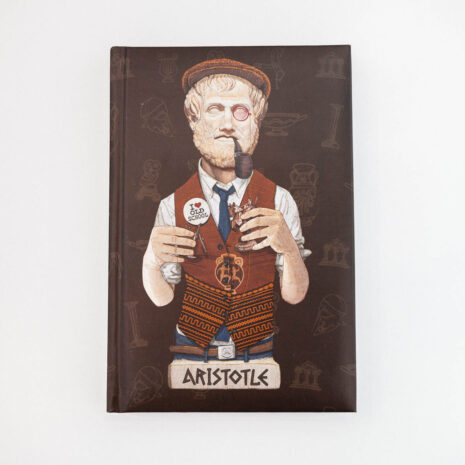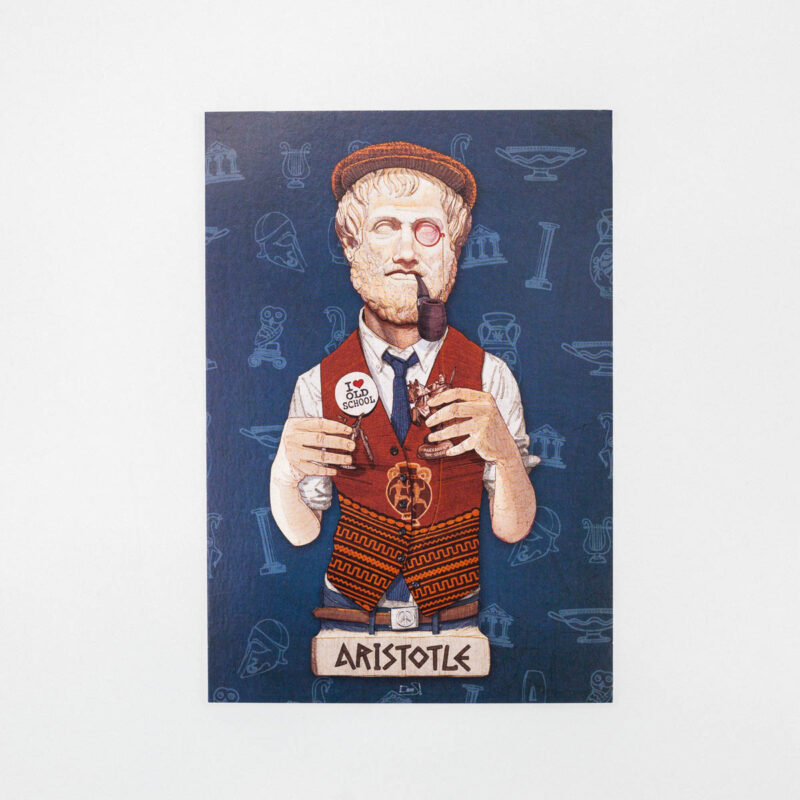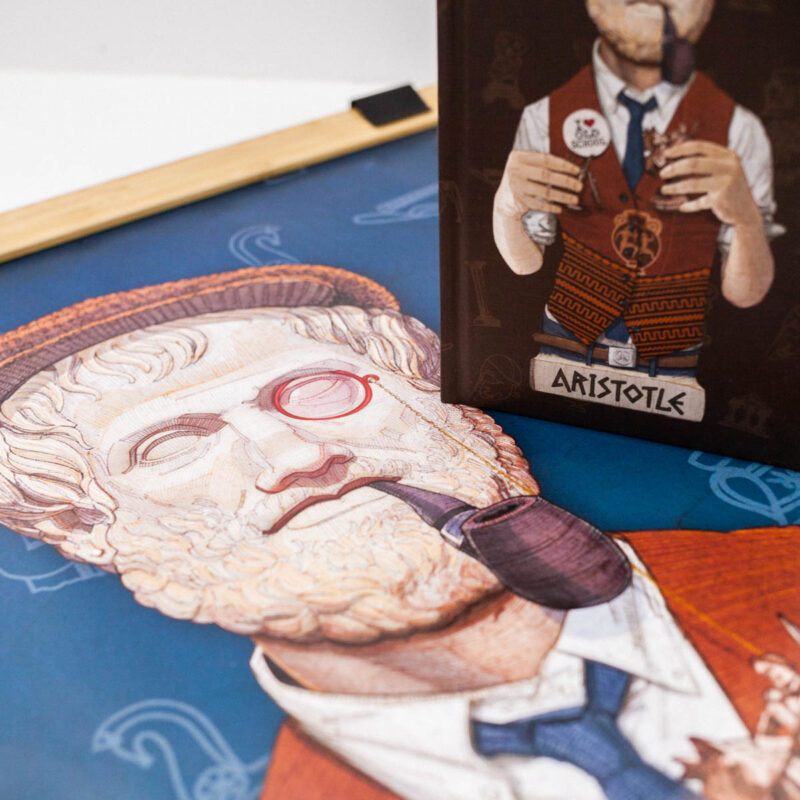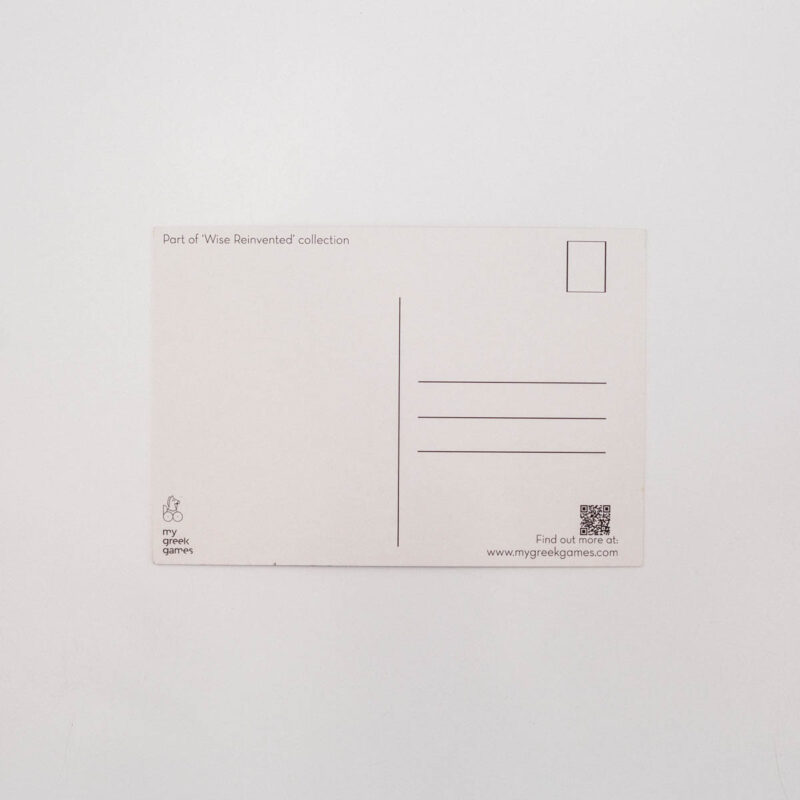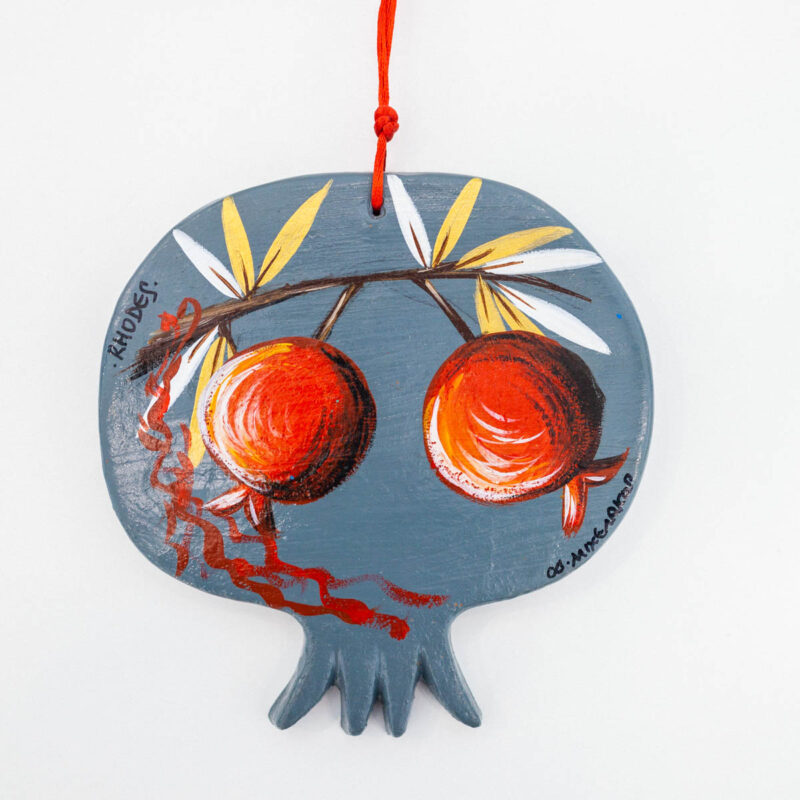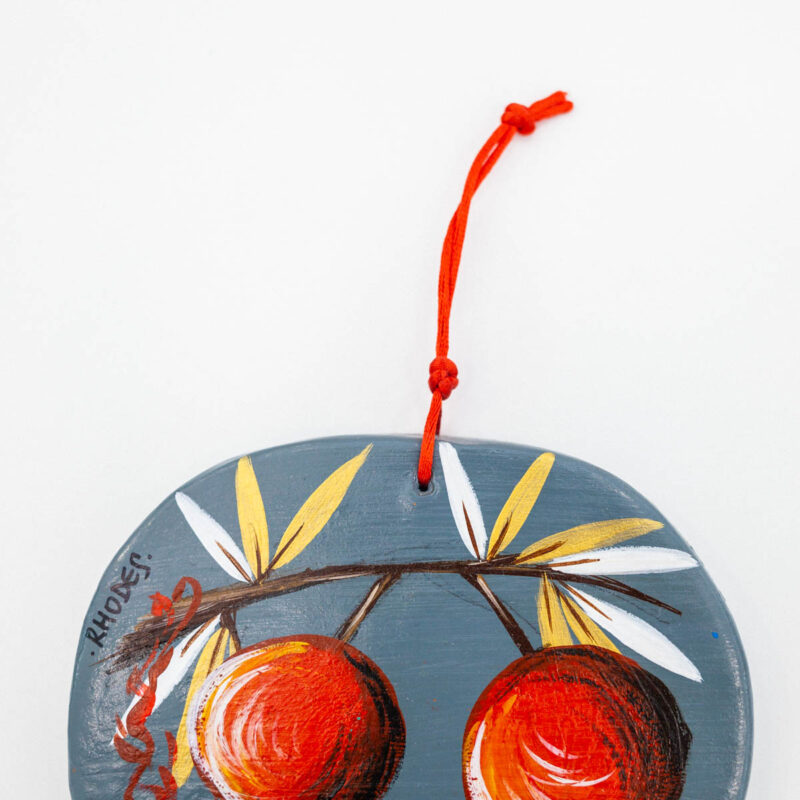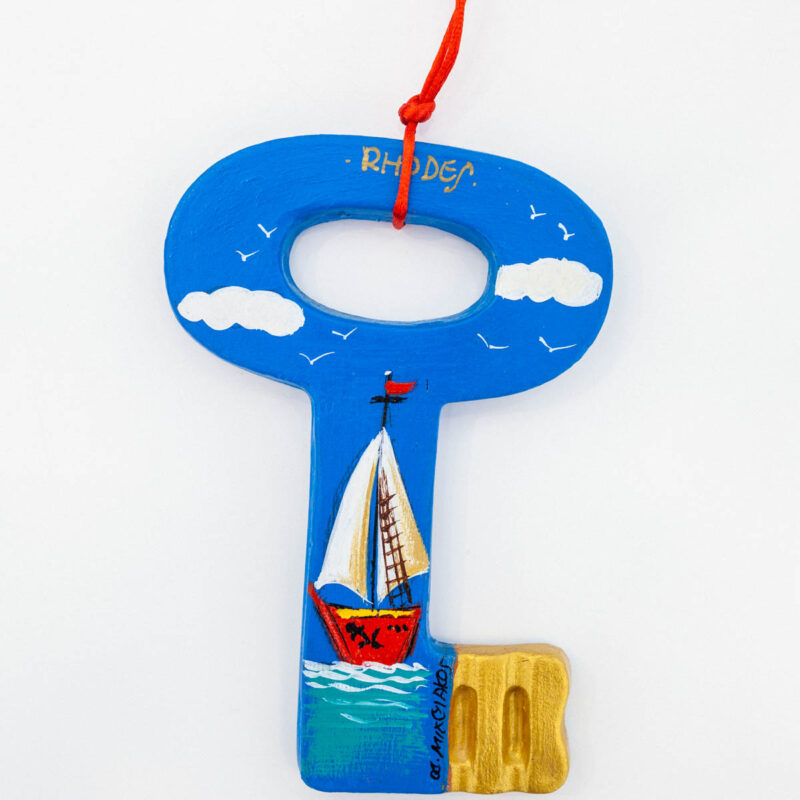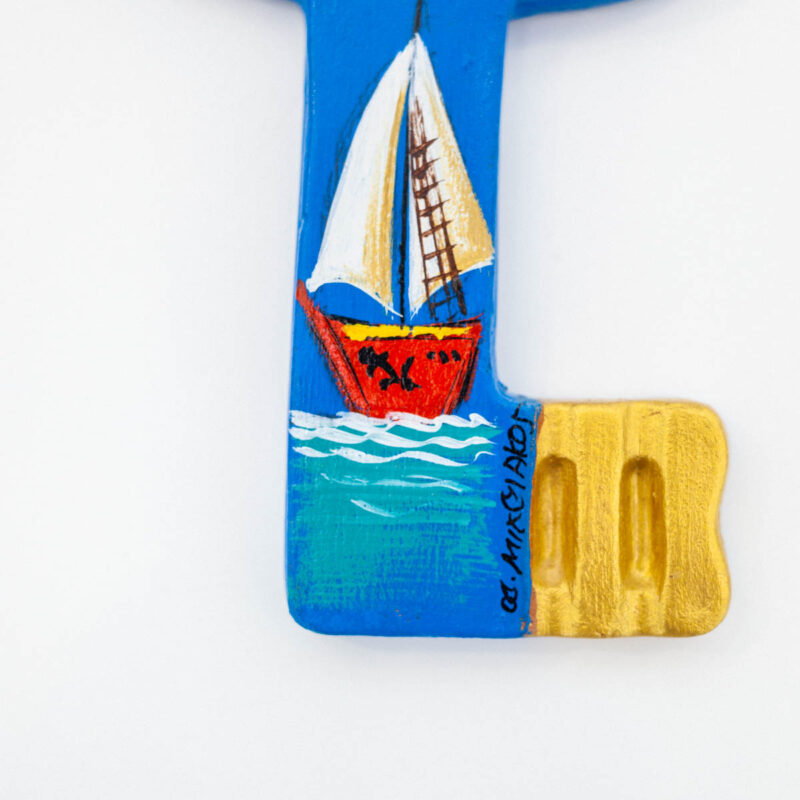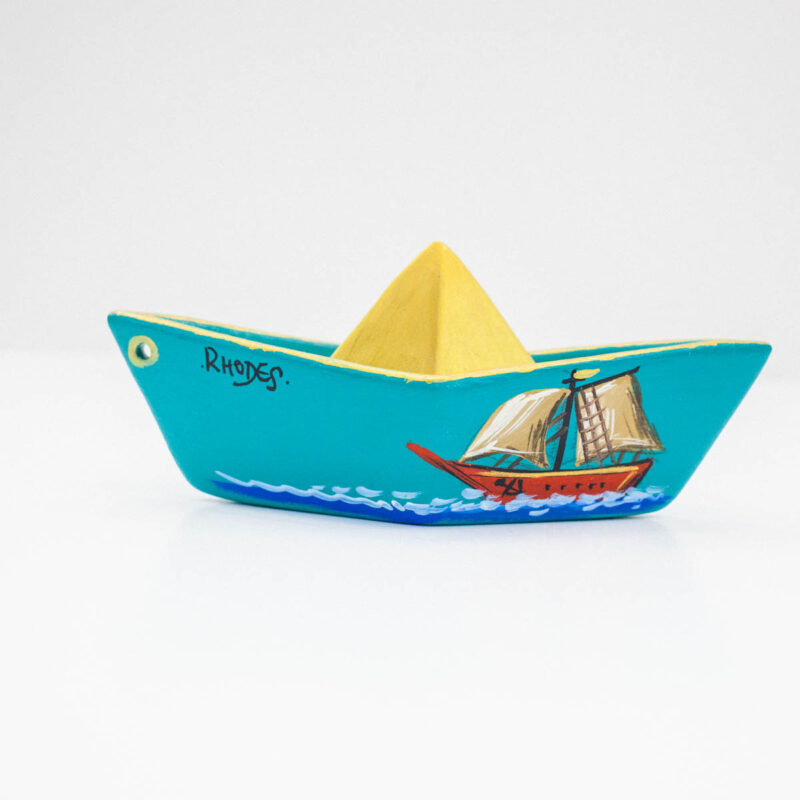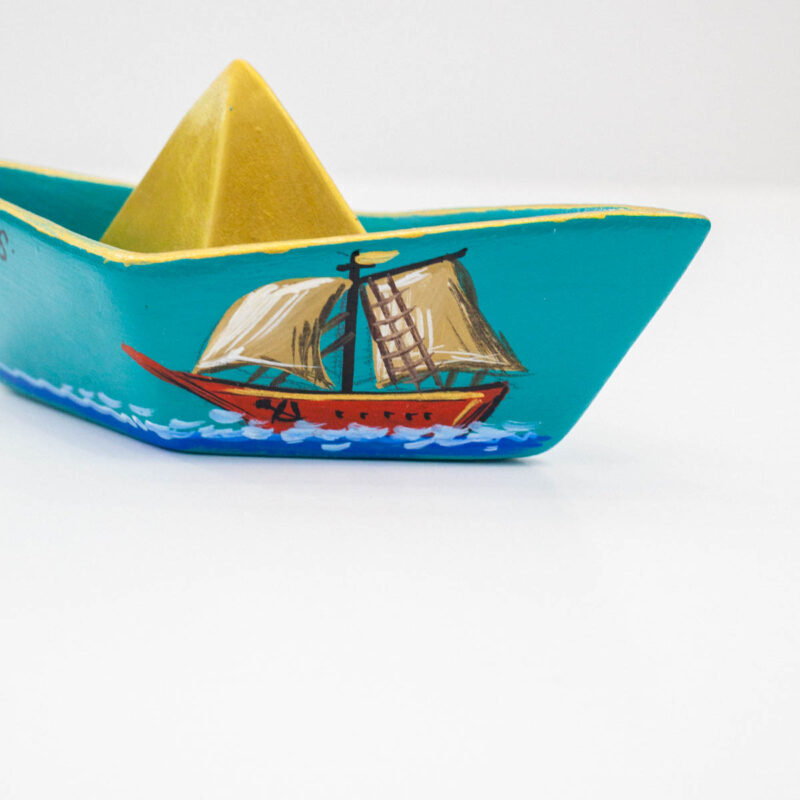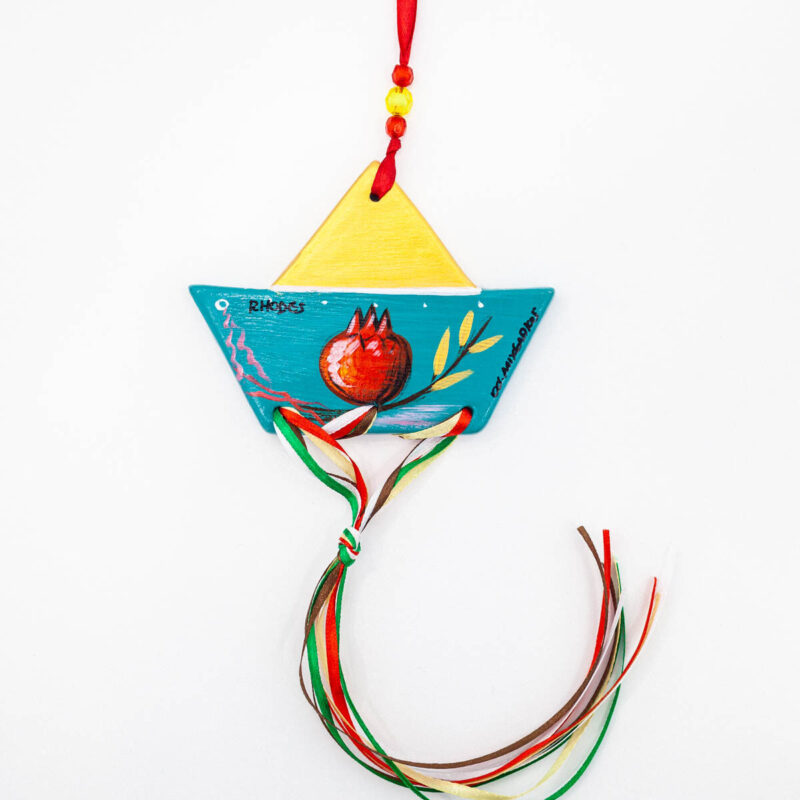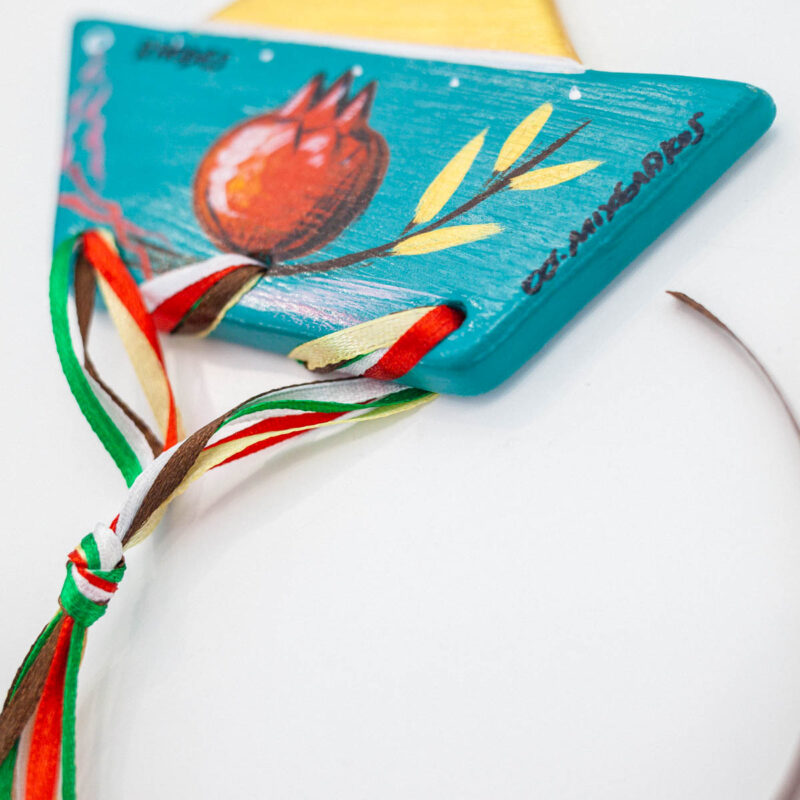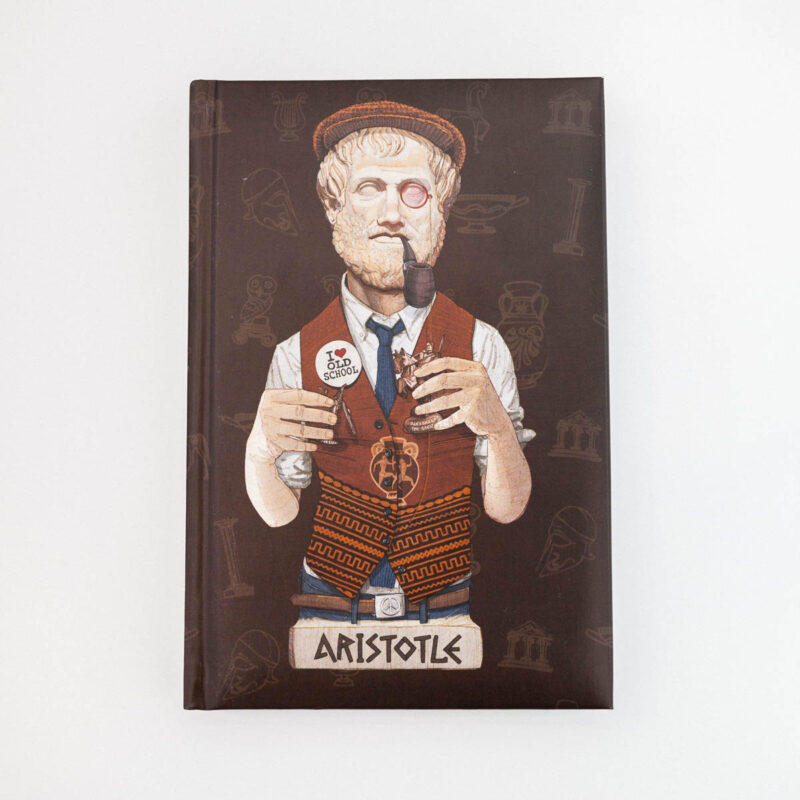NOTEBOOK ARISTOTLE
12.50 €
Notebook with one hundred blank pages and Aristotle on the cover from the “Wise Reinvented” series of collectible illustrations.
The series was created by the Greek illustrator Stavros Damos in collaboration with a Greek company.
Keep your notes, create the designs you want with a pen or pencil and impress everyone with a My Greek Games notebook.
A reason to start a conversation, a reason to stop bothering with technology!
Do it old school, do it for you!
DIMENSIONS: 145 X 215 cm
Description
Notebook with one hundred blank pages and Aristotle on the cover from the “Wise Reinvented” series of collectible illustrations.
The series was created by the Greek illustrator Stavros Damos in collaboration with a Greek company.
Keep your notes, create the designs you want with a pen or pencil and impress everyone with a My Greek Games notebook.
A reason to start a conversation, a reason to stop bothering with technology!
Do it old school, do it for you!
DIMENSIONS: 145 X 215 cm
More information about Aristotle:
Aristotle (Ancient Stagira, 384 BC – Ancient Chalkida, 322 BC) was an ancient Greek philosopher and scientist from Macedonia.
At the age of 17 he entered the Academy of Plato in Athens, where he remained until he was 37.
There he is associated with Plato himself as well as with Eudoxus, Xenocrates and other thinkers.
His works refer to many sciences, such as physics, biology, zoology, metaphysics, logic, ethics, poetry, theatre, music, rhetoric, politics, etc., and constitute the first comprehensive system in Western Philosophy.
The period of maturity begins with the biological researches and his conclusions are the first systematization of biological phenomena in Europe.
Aristotle’s thought and teachings, briefly described by the term Aristotelianism, influenced philosophical, theological and scientific thought for centuries until the late Middle Ages.
After Plato’s death, he left Athens and on the orders of Philip, he undertook in 343 B.C./42 the teaching of Alexander the Great.
According to the Britannica Encyclopedia, “Aristotle was the first genuine scientist in history… and every subsequent scientist owes him something.”
As a teacher of Alexander the Great, Aristotle, Aristotle, acquired various opportunities and an abundance of supplies. Thus, he founded a library at the high school, which became a help in the production of hundreds of his works.
The fact that he was a student of Plato led him to Plato’s views, but later, after Plato’s death, he was led more into empirical studies and shifted from Platonism to empiricism.
He believed that the ideas and knowledge of all peoples were ultimately based on perception.
Many of his works were based on his views on the natural sciences.
Along with his teacher Plato, he is an important figure in the philosophical thought of the ancient world, and his teachings deeply permeated Western philosophical and scientific thought until the Scientific Revolution of the 17th century.
He was a naturalist, philosopher, creator of logic and the most important of the dialecticians of antiquity.
The sum of his influence often ranks him among the most influential world figures of all time, along with his teacher, Plato, and his student, Alexander the Great.

